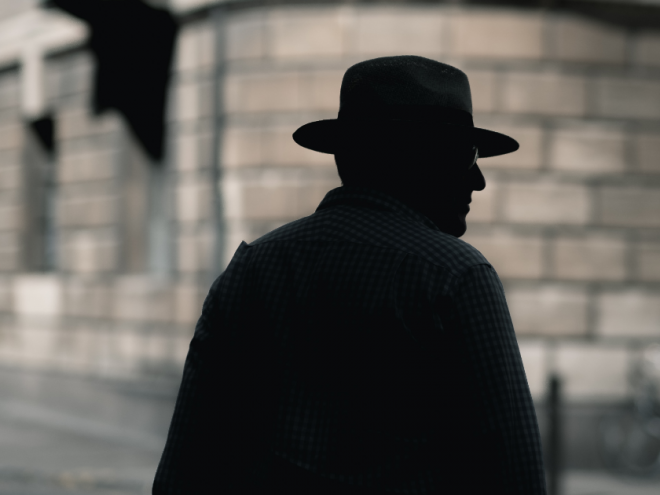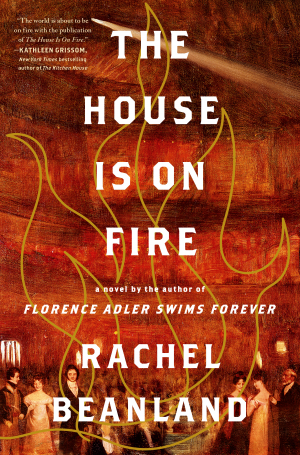Adam Lapid is a Holocaust survivor who lost his family in Auschwitz. He has police training, but now, in the young state of Israel, he is working as a private detective. In 1952, Adam gets himself in trouble with the law when he joins protesters in Jerusalem marching to the Knesset to speak out against Israel’s acceptance of German reparations. His character stands in for the survivors who were not ready to forgive Germany their crimes, much less accept their money and goods.
The history of Jerusalem as a divided city and the efforts of David Ben-Gurion and Menachem Begin during this time in Israel’s history are all entwined with the mystery plot of a young girl, Moria Gafni, who has died by suicide. Her father, a wealthy businessman with connections in high places, is able to rescue Adam when the police intervene. In exchange, Adam has agreed to find out why Moria took her own life.
There are many twists that lead Adam into dangerous situations and a few distractions that keep the reader from guessing what happened to Moria. The storyline is unusual and interesting. The thoroughly researched Israeli history is an added bonus, illustrating the early days of the state’s first leaders and how they were able to improve Israel’s economy and avert financial catastrophe.
In each chapter, we learn more about Adam’s past and his strong moral code as an empathic character. Following him through the lively streets of Tel Aviv and Jerusalem, the reader feels like she is walking at his side.
Merle Eisman Carrus resides in New Hampshire. She received her Masters of Jewish Studies from Hebrew College and is a graduate of Emerson College. Merle is the National President of the Brandeis National Committee. She leads books discussion groups and author interviews. She writes book reviews for various publications. She blogs her book reviews at
biteofthebookworm@blogspot.com
Discussion Questions
Courtesy of Jonathan Dunsky
- Do you think Israel made the right decision to negotiate with Germany for reparations for the Holocaust? Discuss the moral, financial, and historical arguments and implications.
- Discuss David Ben-Gurion’s decision to not prosecute the demonstrators? Did he make the right call?
- Shmuel Birnbaum tells Adam Lapid that loving your country even when it does things you detest is as good a definition of a patriot as he has ever heard. Do you agree with this statement? If not, suggest another.
- Ben-Gurion pushed for negotiations with Germany despite fervent public opposition. When should a leader do not what the people want but what he thinks they need? Can you give other examples of such decisions?
- Discuss the character of Menachem Begin. On the one hand, the leader of the Irgun and the catalyst of the storming of the Knesset; on the other, a man of peace who signed Israel’s peace agreement with Egypt. How did A Death in Jerusalem change your view of Begin, if at all?
- Between 1949 – 1967, Jerusalem was a divided city, with access to Judaism’s holiest sites blocked to Israeli Jews. How did the descriptions of a divided Jerusalem make you feel? Have they influenced your opinion of the current status of the city?
- Several characters in this novel resort to vigilantism. When do you think vigilantism is warranted and just? Where do you draw the line?
- Apart from Adam Lapid, who was your favorite character in A Death in Jerusalem, and why?
- Ben-Gurion ordered the police defending the Knesset to refrain, at all costs, from using their firearms. Discuss this order by Ben-Gurion. How might history have changed if not for this order?
- Discuss the topic of reparations. Can they ever resolve a historic wrong? Can they be a means for reconciliation and greater understanding between former persecutors and victims?
- Today, Israel and Germany enjoy close relations. How do you feel about this? What lessons can be applied from this historical development to other conflicts?
- Discuss the character of David Ben-Gurion. Has reading A Death in Jerusalem changed your views of Israel’s first prime minister? If so, in what way?
- Putting yourself in Adam Lapid’s shoes, can you see yourself taking part in the assault on the Knesset? What does it say about Adam’s character that he participated in it?
- What do you think about Naomi Hecht? Discuss her character.
- What themes did you identify in A Death in Jerusalem?
- If you wished to recommend this book to a friend or family member, how would you describe it?





